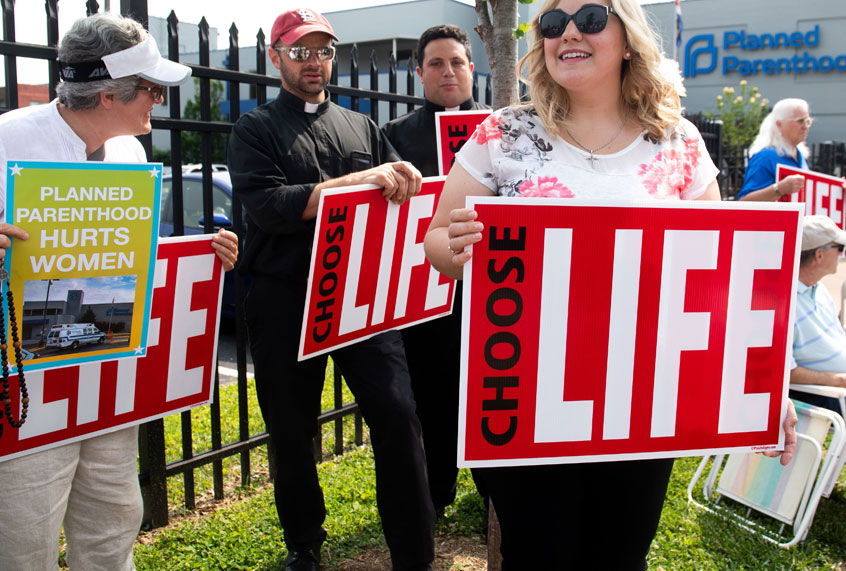A myth about women and abortion has long been perpetuated by pro-life conservatives: that abortions hurt women’s health. Research has shown multiple times that this is not the case. Yet a new study published on Monday found that those who were denied an abortion ended up having poorer health long-term, throwing another wrench in a common pro-life myth about women’s health and abortion access.
The study, titled “Self-reported Physical Health of Women Who Did and Did Not Terminate Pregnancy After Seeking Abortion Services: A Cohort Study,” was published in the journal Annals of Internal Medicine on Monday. It surveyed women from 30 U.S. abortion facilities from 2008 to 2010. Nearly 900 women’s results were analyzed: 328 who had first-trimester abortions, 383 who had second-trimester abortions, and 163 who gave birth.
Women self-reported their health semi-annually over the next five years after their abortions. The results found that there were no significant differences observed in health or chronic pain after first-trimester versus second-trimester abortions. Twenty-seven percent of women who gave birth reported fair or poor health compared with 20 percent of women who had a first-trimester abortion and 21 percent who had a second-trimester abortion.
This population of the study was limited to women who sought out abortions. Dr. Lauren Ralph, an assistant professor at the University of California, San Francisco who co-led the study, says this is one of its strengths.
“Past research has largely looked at health differences between women who chose to give birth and those who chose to have an abortions,” Ralph said in a statement over email. “Because of something called the ‘healthy mother effect’ — namely that women in good health are more likely to continue a pregnancy — this previous research may have underestimated the relative safety of abortion as compared to childbirth.”
Women who gave birth reported more chronic headaches, joint pain and migraines compared to those who had an abortion. Two women who gave birth after being denied a wanted abortion died in the postpartum period.
“It was sobering to observe two maternal deaths, or deaths due to pregnancy related causes, in our study sample,” she said. “Both of these deaths occurred to women who gave birth after being denied a wanted abortion.”
This study comes an unparalleled moment, as many conservative states are placing restrictions that make it nearly impossible for women to have access to abortion clinics. Alabama’s new law bans all abortion from the time a “woman [is] known to be pregnant,” without any exceptions.
Georgia, Ohio, Kentucky, Mississippi and Louisiana have passed bills which prohibit abortions after about six weeks. Missouri has only one abortion clinic left, and courts intervened recently to prevent it from closing.
“I think our study findings offer much needed evidence about what might happen if we continue to restrict women’s access to a wanted abortion,” Ralph said. “Although some argue that abortion is detrimental to women’s health, these data do not suggest worse health over five years in women who received an abortion compared to those who were denied one and went on to give birth.”
“In other words, the argument that abortion harms women – or, that restricting access to abortion is necessary to protect women’s health – is not supported by our data,” she added.



